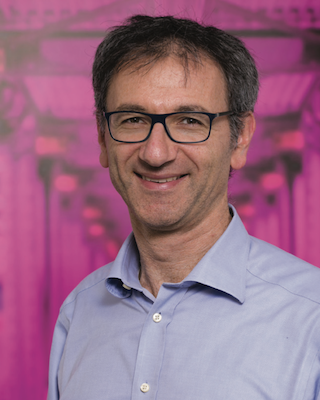Future Crops addresses yield-cost-quality equation
A new Dutch-Israeli venture will make it possible to grow high-quality herbs and leafy greens without relying directly on Mother Nature.
Agri-tech startup Future Crops has developed an indoor vertical farming system where crops are grown in a unique soil substrate composition under controlled conditions. Future Crops CEO and Co-Founder Gary Grinspan explains how the enterprise addresses production challenges while guaranteeing maximum yield at minimal cost without compromising on quality.
Consistent production of high-yielding, quality crops is often challenged by environmental variables, such as available moisture, temperature, disease and pests. Coupled with pressure brought on by urbanization, declining arable land and a growing global population, producers have been forced to think outside of the box. For some, that means moving farming indoors.
The indoor vertical farm developed by Future Crops is a fully automated 8,000 square-meter facility situated in the Netherlands in Westland, a region often considered the greenhouse hub of Europe. The nine-story facility is mostly powered by solar energy, and uses precision technologies that make it possible to grow herbs and leafy greens in optimal conditions.

Grinspan said the facility offers several benefits, including enabling growers to deliver quality, fresh produce that is free from pesticides. Using data-driven technology, Future Crops is able to tailor to each crop’s needs by creating the ideal growing conditions. The technology controls everything from humidity to temperature to lighting.
“Plants will draw what they need from nature,” explained Grinspan. “Our team of agronomists are able to ‘listen’ to each plant to determine its individual needs in real time — how much ‘sleep’ versus light, the type of light, air quality, how much water, specific nutrient needs, etcetera.”
Using the algorithm, “recipes” can be created to cater to the plants, giving them precisely what they need at each stage of development. Plants express nuances in response to the various parameters, including morphology, shape, size and color. Grinspan said Future Crops has control over 70-80 parameters that impact production, depending on the crop grown. They have tested the different variables and are in the process of optimizing variables for each crop.
The plants are grown in a unique substrate that uses a nutrient-enriched soil-like recipe. The aim is to keep it as close to nature as possible. “We learned from nature and did not want to change its rules,” he said. “Our system can consistently grow a comprehensive range of herbs and leafy microgreens throughout the year, completely free of any pesticides or biological substances, and with zero dependence on climate conditions.”
Grinspan said growing indoors under controlled conditions offers several benefits. Because the crops are grown without the use of chemicals, they do not need to be washed once they reach maturity. They can simply be cut an packaged directly. Using special cutting equipment, the different herbs and leafy greens can be harvested automatically and conveyed directly to a packing machine, explained Grinspan.
Not having to wash the harvested product offers an additional benefit, too: freshness and longevity. In an in-house test, Future Crops found that their leafy greens remained fresh for 28 days, much longer than product produced outside. Grinspan attributes the longer shelf life to being able to grow, harvest and package in stable temperatures ideal for each end product.
“Of course, it has to be kept at the right temperature because if there is big temperature fluctuation it won’t help the product,” he said. “But when you keep it at the right temperature, the crispiness and the freshness and the shelf life is amazing.”
Being located in the heart of an urban center shortens the distance from “farm” to consumer, too.
“It’s a very exciting journey,” said Grinspan. “It’s a tough industry, it’s a young industry, and I think that there are huge challenges. But I have no doubt that we will see more and more vertical farms in the future.”
Future Crops currently runs supply contracts with a leading grocery retailer in the Netherlands and with additional retailers in Europe.







